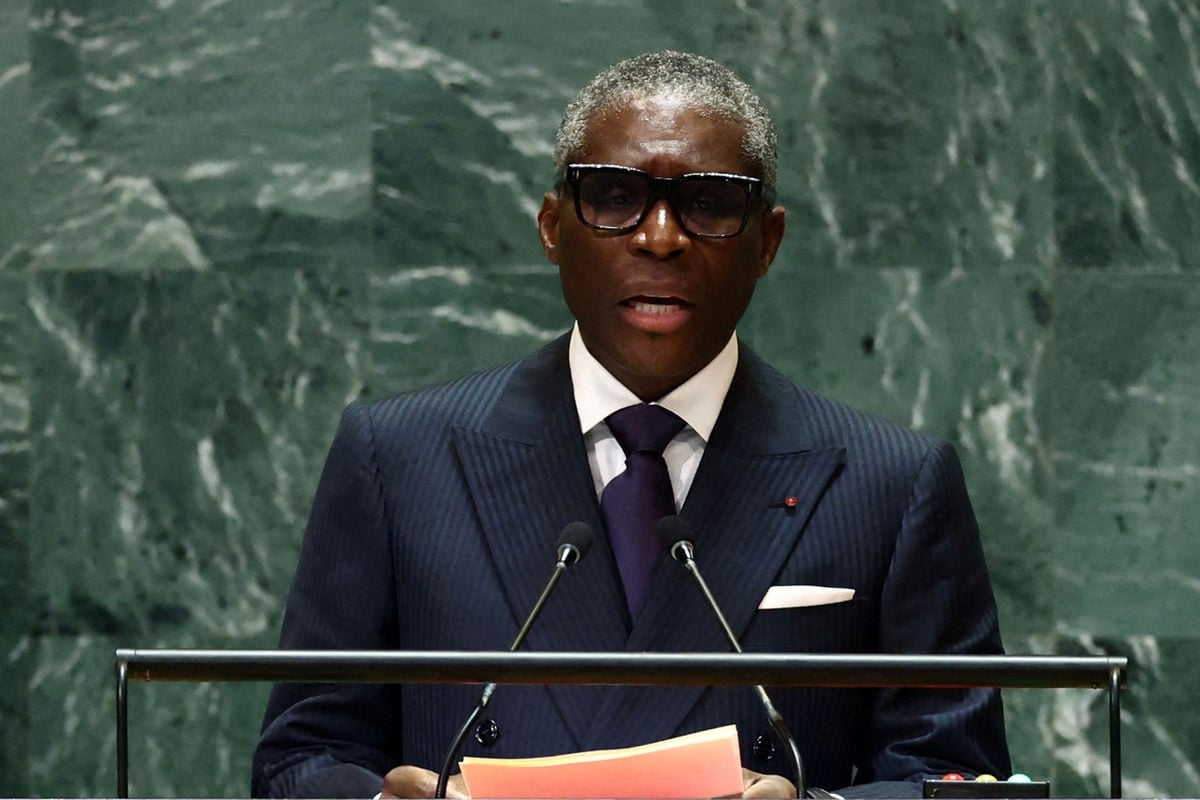Prime
Judiciary score card

Chief Justice Alfonse Owiny-Dollo signs on a placard during the launch of the Judiciary’s annual performance report for the last financial year at the High Court in Kampala yesterday. Left is Deputy Chief Justice Richard Buteera. PHOTO/ISAAC KASAMANI
What you need to know:
- The performance report highlighted a 49 percent case disposal rate despite the pandemic disruptions.
Chief Justice Alfonse Owiny-Dollo yesterday gave the first state of the Judiciary address in which he detailed achievements, challenges and recommendations realised in the 2020/2021 financial year.
“With the enactment of the Administration of the Judiciary Act, 2020, it is now a requirement that the Judiciary annual performance report be aligned to the financial year, rather than the calendar year,” Chief Justice Dollo said.
“This inaugural report is, therefore, in fulfilment of Section 39 (1) that requires the Chief Justice to publish an annual performance report for every concluded financial year and distribute copies to the President, Speaker and other stakeholders,” he added.
Achievements
The performance report highlighted a 49 percent case disposal rate despite the Covid-19 pandemic disruptions.
“Courts disposed of 156,875 cases out of a caseload of 317,929…The 156,875 cases disposed of translated into a 20 per cent improvement in case disposal from 130,869 cases disposed of in the financial year 2019/2020,” the report reads in part.
It adds: “The courts recorded a four percent increase in case registration from 159,543 cases in the financial year 2019/2020 to 165,347 cases in the financial year 2020/2021.”
The Chief Justice attributed the high case disposal rate to use of alternative dispute resolution mechanisms such as the plea bargaining, mediation and the Small Claims Procedure.
He also cited the weeding out of dormant cases in accordance with the law, and use of video conferencing systems to hear cases.
Judicial officers used the lockdown to write judgments and deliver them via email.
The Chief Justice said video conferencing systems were installed at the Commercial Division of the High Court, Mbarara High Court, Arua High Court, Masindi High Court and Masaka High Court.
“The system was very vital in the handling of cases during the Covid-19 pandemic lockdown and the strict enforcement of social distancing. It enabled the Judiciary handle cases online hence reducing case backlog,” he said.
Challenges
Chief Justice Owiny-Dollo also observed several challenges such a backlog of 152,582 cases brought forward from the previous financial year.
“The Judiciary was inadequately staffed at 37 percent of the approved staff structure of 2009. The total number of 378 judicial officers in the financial year was expected to serve a population projected at 45 million people. Out of the 386 grade one magistrate courts, only 126 had magistrates,” he said.
A total of 27 chief magistrates were caretaking between two to six chief magistrates courts, with the Fort Portal caretaking six magisterial areas while the ones of Soroti and Lira were each running five Chief Magisterial areas.
The Judiciary also faced challenges in transportation. The work of judicial officers, especially those at the lower bench and in hard-to-reach areas such as the islands of Koome, Buvuma and Kalangala, was complicated due to limited vehicles.
The performance report also indicates that the pandemic left a trail of destruction.
It precipitated a nationwide lockdown that negatively impacted court attendance.
“Some courts closed completely, case registration reduced and some court processes were not served,” the report reads in part.
Given the sensitive nature of the adjudication, the performance report revealed that some of the officers received personal threats relating to management of cases.
Chief-Justice decries inflation
The Chief Justice decried the escalating inflation levels in the country. He said the current market values of products are impacting adversely on the pecuniary jurisdiction of magistrates courts.
Chief Justice Owiny Dollo said an average used car goes for about Shs50m while a 50x100 feet plot of land in the suburbs of any city costs about Shs50m, adding that yet the bulk of judicial officers who are grade one magistrates can only handle disputes up to Shs20m.
He called for an amendment of the Magistrates Court Act to increase the monetary face value to more than Shs20m.
The other challenges included budgetary limitations and inadequate court infrastructure.




